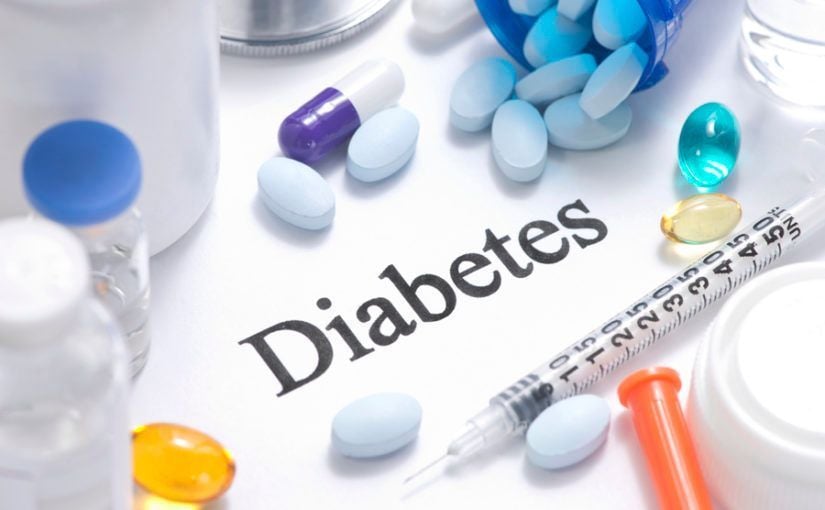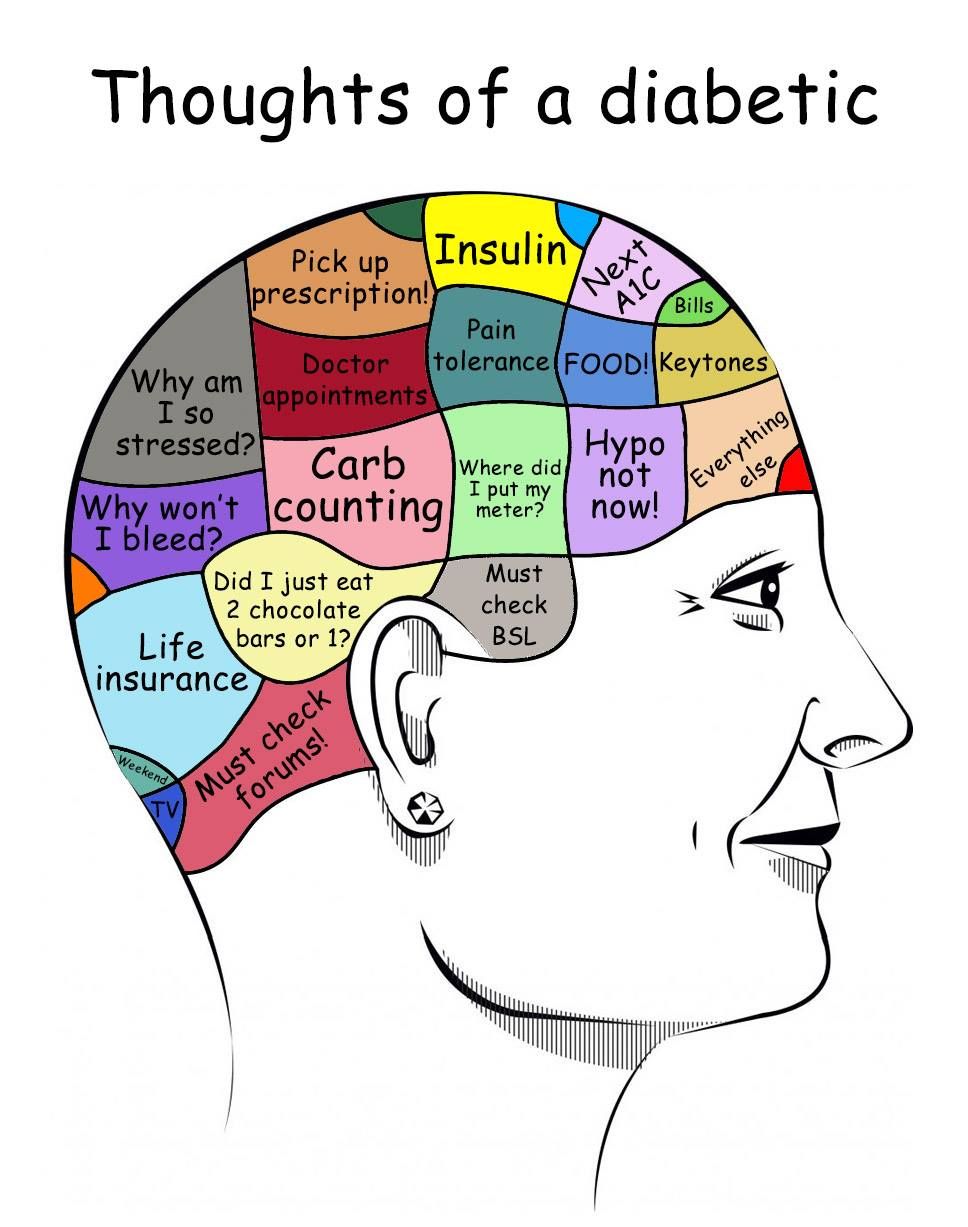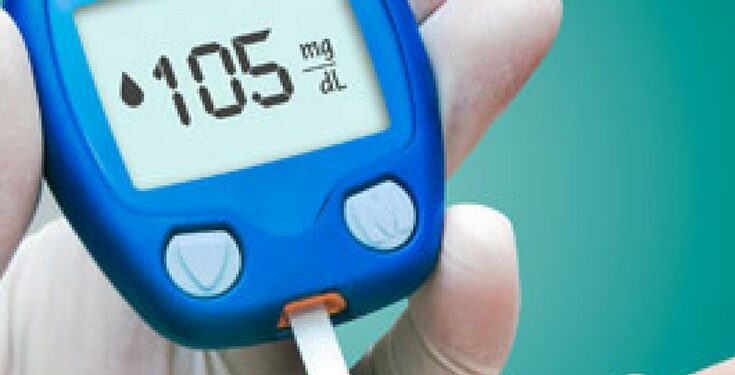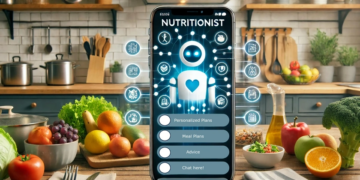Ramadan is a time of spiritual reflection, fasting, and community, but it also presents unique challenges for individuals managing diabetes. Navigating the month-long fast safely requires a comprehensive strategy that integrates medical advice, careful meal planning, consistent blood sugar monitoring, and lifestyle adjustments. This article offers detailed insights and practical tips to help individuals with diabetes manage their condition during Ramadan effectively. By understanding the risks and implementing proactive measures, you can maintain optimal health while observing the sacred month.
Fasting during Ramadan, which involves abstaining from food and drink from dawn to sunset, can significantly impact the metabolic balance in people with diabetes. The change in eating patterns, physical activity, and sleep schedules can all influence blood sugar levels. Therefore, careful planning and monitoring are essential to avoid complications such as hypoglycemia (low blood sugar) or hyperglycemia (high blood sugar).
This article delves into the intricacies of managing diabetes during Ramadan, offering comprehensive guidance on medication adjustments, meal planning, hydration, physical activity, and regular monitoring. Additionally, it provides insights into the roles of healthcare professionals, technology, and community support in ensuring a safe fasting experience.
Impact of Fasting on Diabetes
Fasting can have both positive and negative effects on blood glucose levels. While some individuals may experience improved blood sugar control, others might face challenges such as hypoglycemia or postprandial hyperglycemia (high blood sugar after meals). Understanding these dynamics is the first step in adapting your diabetes management plan.
Key Considerations:
A. Metabolic Changes:
- Fasting affects the body’s natural rhythm by altering the balance between insulin and glucagon, leading to potential fluctuations in blood sugar levels.
B. Medication Adjustments:
- The timing and dosage of diabetes medications may need to be modified to align with the altered meal patterns during Ramadan.
C. Risk of Hypoglycemia:
- Extended periods without food can increase the risk of low blood sugar, particularly if you are on insulin or other medications that lower blood sugar levels.
D. Risk of Hyperglycemia:
- Consuming large meals during the pre-dawn (suhoor) or post-sunset (iftar) meal can cause blood sugar spikes, which may lead to complications over time.
Pre-Ramadan Medical Consultation
Before Ramadan begins, it is crucial to consult with your healthcare provider to develop a personalized diabetes management plan. This consultation helps identify potential risks and adjust your treatment regimen to ensure that fasting is safe for you.
What to Discuss with Your Doctor:
A. Medical History and Current Health Status:
- Provide a detailed account of your diabetes history, including any previous complications or hospitalizations.
B. Medication Review:
- Review all medications, including insulin, oral hypoglycemic agents, and any other drugs, to determine if dosage adjustments are necessary.
C. Blood Sugar Monitoring:
- Discuss the frequency and timing of blood sugar testing during Ramadan, ensuring you have the appropriate tools and supplies.
D. Dietary Recommendations:
- Get advice on meal planning, including portion sizes and nutritional content, to maintain stable blood sugar levels.
E. Emergency Protocols:
- Establish clear guidelines for what to do in case of severe hypoglycemia or hyperglycemia, including when to break the fast if necessary.
A collaborative approach with your healthcare provider ensures that your fasting plan is safe and tailored to your specific needs.
Nutritional Strategies for Suhoor and Iftar
Proper nutrition is essential for managing diabetes during Ramadan. The pre-dawn meal (suhoor) and the post-sunset meal (iftar) need to be planned meticulously to prevent blood sugar fluctuations.
Suhoor: The Pre-Dawn Meal
The suhoor meal is critical as it provides the necessary energy and nutrients to sustain you through the day. Focus on consuming foods that offer slow-release energy and are rich in fiber and protein.
A. Complex Carbohydrates:
- Opt for whole grains, oats, and barley to ensure a slow and steady release of glucose.
B. High-Quality Proteins:
- Include lean proteins such as eggs, yogurt, and legumes to help maintain muscle mass and satiety.
C. Healthy Fats:
- Incorporate sources of healthy fats like avocados, nuts, and olive oil to support sustained energy levels.
D. Fiber-Rich Foods:
- Fresh fruits and vegetables, along with whole grains, can help regulate digestion and prevent blood sugar spikes.
E. Hydration:
- Begin your day with plenty of water to ensure adequate hydration throughout the fasting period.
Iftar: Breaking the Fast
The iftar meal is the time to replenish your body after a day of fasting. It is essential to break your fast gradually with balanced nutrition.
A. Begin with Dates and Water:
- Traditionally, breaking the fast with dates and water helps stabilize blood sugar and rehydrates the body.
B. Light Soups or Salads:
- Start with a light soup or salad to prepare your digestive system for a larger meal.
C. Balanced Main Course:
- Your main meal should include a mix of lean proteins, complex carbohydrates, and plenty of vegetables.
D. Avoid Overeating:
- Large portions can lead to a rapid increase in blood sugar. Eat slowly and mindfully.
E. Desserts:
- If you desire dessert, opt for fruits or low-sugar options rather than high-sugar sweets.
Incorporating these nutritional strategies can help maintain balanced blood glucose levels and support overall well-being during Ramadan.
Medication Management During Ramadan
Adjusting your medication schedule is often necessary to accommodate the fasting hours and to avoid complications. The timing and dosage of your medications should be carefully managed to ensure effective diabetes control.
General Guidelines for Medication Adjustments:
A. Insulin Therapy:
- Those using insulin may need to alter their injection times. Long-acting insulin might be taken during the evening, while short-acting insulin can be adjusted around meal times.
B. Oral Medications:
- Some oral diabetes medications may require dosage adjustments or timing modifications. It is essential to follow your healthcare provider’s recommendations.
C. Regular Monitoring:
- Frequent blood sugar checks are vital, especially during the initial days of fasting, to determine how your body is responding.
D. Adjusting Dosage Based on Activity:
- Consider the impact of physical activity and meal variations on your blood sugar levels and adjust medication accordingly.
E. Emergency Preparedness:
- Always have a quick source of glucose on hand in case of hypoglycemia, such as glucose tablets or juice.
Working closely with your healthcare team to tailor your medication regimen ensures that you can maintain stable blood glucose levels while fasting.

Importance of Regular Blood Sugar Monitoring
Monitoring blood sugar levels regularly is a cornerstone of diabetes management during Ramadan. This practice allows you to understand how your body responds to fasting and make timely adjustments to your plan.
Benefits of Frequent Monitoring:
A. Immediate Feedback:
- Frequent testing provides real-time insights into your blood sugar trends, enabling prompt corrective measures.
B. Personalized Management:
- Tracking your blood sugar levels helps tailor dietary and medication adjustments to your unique needs.
C. Prevention of Complications:
- Regular monitoring can prevent severe hypoglycemia or hyperglycemia, reducing the risk of emergency situations.
D. Enhanced Communication with Healthcare Providers:
- Sharing your blood sugar readings with your doctor can help refine your diabetes management plan throughout Ramadan.
Practical Tips for Monitoring:
A. Use of Continuous Glucose Monitors (CGM):
- If available, CGM devices can provide detailed insights into your blood sugar patterns.
B. Set Reminders:
- Use alarms or mobile apps to remind you to check your blood sugar levels at scheduled times.
C. Maintain a Log:
- Keep a detailed record of your readings, meals, and physical activities to identify patterns and triggers.
D. Understand the Numbers:
- Familiarize yourself with target blood sugar ranges and know when to seek medical assistance.
Regular monitoring is crucial to safely navigate the challenges of fasting while managing diabetes effectively.
The Role of Physical Activity
Maintaining physical activity during Ramadan is essential for overall health and diabetes management. However, exercise routines may need to be adjusted to prevent blood sugar fluctuations and dehydration.
Guidelines for Exercising During Ramadan:
A. Timing of Exercise:
- The best time to exercise is either after iftar when you have replenished your energy or just before iftar so that you can eat immediately after your workout.
B. Type of Exercise:
- Engage in light to moderate activities such as walking, yoga, or gentle stretching to avoid excessive strain.
C. Hydration During Activity:
- Ensure you are well-hydrated before, during, and after exercise. Avoid strenuous activities during the peak heat of the day.
D. Monitoring Blood Sugar:
- Check your blood sugar levels before and after exercising to ensure that physical activity does not cause hypoglycemia.
E. Listen to Your Body:
- Pay attention to signs of fatigue, dizziness, or weakness. If you experience any adverse symptoms, stop exercising immediately and consult your healthcare provider.
Balancing exercise with proper nutrition and hydration can enhance your diabetes management strategy during Ramadan.
Hydration and Its Importance
Staying hydrated during non-fasting hours is vital for everyone, especially individuals with diabetes. Dehydration can adversely affect blood sugar levels and overall health.
Strategies for Staying Hydrated:
A. Regular Water Intake:
- Aim to drink water consistently between iftar and suhoor. Keep a water bottle nearby to remind yourself to drink frequently.
B. Electrolyte Balance:
- Consider beverages that replenish electrolytes, especially if you engage in physical activity or live in a hot climate.
C. Avoid Sugary Drinks:
- High-sugar beverages can lead to rapid spikes in blood sugar. Opt for water, herbal teas, or diluted fruit juices with low sugar content.
D. Monitor Urine Color:
- Light yellow urine is a good indicator of proper hydration; darker shades may signal dehydration.
E. Incorporate Hydrating Foods:
- Foods like cucumbers, watermelon, and oranges contribute to overall fluid intake.
Proper hydration is a fundamental aspect of managing diabetes during Ramadan, ensuring that your body remains balanced and energy levels are maintained.
Stress Management and Sleep
The changes in daily routines during Ramadan can also affect stress levels and sleep patterns, both of which can influence blood sugar control. Managing stress and ensuring adequate sleep are vital components of a comprehensive diabetes management plan.
Techniques for Managing Stress:
A. Mindfulness and Meditation:
- Practicing mindfulness or meditation can help reduce stress and improve focus during fasting periods.
B. Deep Breathing Exercises:
- Simple breathing techniques can calm the mind and alleviate stress, promoting better overall well-being.
C. Time Management:
- Plan your day to include breaks, prayer, and relaxation, ensuring that your schedule remains balanced.
D. Social Support:
- Engage with family, friends, or community groups to share experiences and receive encouragement during Ramadan.
E. Professional Guidance:
- If stress becomes overwhelming, consider speaking with a mental health professional for additional support.
The Role of Sleep:
A. Establish a Consistent Routine:
- Aim for a regular sleep schedule, even if your meal times change. Consistency can help regulate your internal clock.
B. Create a Restful Environment:
- Ensure your sleeping area is cool, dark, and quiet to promote uninterrupted sleep.
C. Short Naps:
- Brief naps can help combat fatigue without interfering with nighttime sleep.
D. Limit Screen Time:
- Reducing exposure to screens before bedtime can improve sleep quality and help maintain healthy blood sugar levels.
E. Monitor Sleep Patterns:
- Keep track of your sleep duration and quality, and discuss any issues with your healthcare provider if necessary.
Adequate sleep and effective stress management are crucial for maintaining a stable blood sugar level and overall health during Ramadan.
Community Support and Education
Being part of a supportive community can significantly enhance your ability to manage diabetes during Ramadan. Whether it is through local support groups, online forums, or community centers, sharing experiences and strategies can lead to better outcomes.
Benefits of Community Engagement:
A. Peer Support:
- Connecting with others who are also managing diabetes during Ramadan can provide emotional support and practical tips.
B. Educational Workshops:
- Attend seminars and workshops that focus on diabetes management during fasting to stay informed about best practices.
C. Sharing Resources:
- Community platforms often share valuable resources, including recipes, meal planning guides, and personal experiences.
D. Encouragement and Motivation:
- Regular interaction with supportive peers can boost motivation and adherence to your diabetes management plan.
E. Access to Expert Advice:
- Community events often feature healthcare professionals who can offer personalized advice and answer questions.
Engaging with your community not only helps you stay motivated but also ensures that you have access to a network of individuals who understand the unique challenges of managing diabetes during Ramadan.
Leveraging Technology for Better Management
Advances in technology have revolutionized diabetes management, making it easier to monitor and control blood sugar levels during Ramadan. Utilizing digital tools can help you stay on track and make informed decisions throughout the fasting period.
Technological Tools and Their Benefits:
A. Continuous Glucose Monitoring (CGM):
- CGM devices provide real-time data on blood sugar levels, enabling prompt adjustments to your management plan.
B. Mobile Health Apps:
- Apps designed for diabetes management can help track your meals, physical activity, and blood sugar readings, while also providing reminders for medication and hydration.
C. Telemedicine:
- Virtual consultations with healthcare providers ensure you receive timely advice and adjustments to your treatment plan without the need for in-person visits.
D. Smart Insulin Pens:
- These devices can track insulin doses and timing, providing valuable data that can be shared with your healthcare team.
E. Digital Health Records:
- Keeping an organized digital record of your blood sugar readings, medication changes, and other health metrics can facilitate better communication with your doctor.
Embracing technology can significantly enhance your ability to manage diabetes during Ramadan, ensuring that you remain informed and proactive in your approach.

Strategies for Long-Term Success
Managing diabetes during Ramadan is not just about short-term adjustments; it is also an opportunity to build long-term habits that contribute to overall health and well-being. The lessons learned during this period can be applied throughout the year to enhance your diabetes management strategy.
Long-Term Strategies:
A. Continuous Education:
- Stay updated with the latest research and recommendations regarding diabetes management and fasting practices.
B. Regular Medical Follow-Ups:
- Schedule routine check-ups with your healthcare provider to review your diabetes management plan and make necessary adjustments.
C. Balanced Diet Year-Round:
- Incorporate the nutritional principles practiced during Ramadan into your everyday diet for consistent blood sugar control.
D. Consistent Physical Activity:
- Develop a regular exercise routine that suits your lifestyle and health needs, ensuring that you remain active regardless of the fasting period.
E. Mindful Living:
- Embrace practices such as meditation, mindfulness, and stress management techniques to maintain a balanced lifestyle.
Implementing these strategies can lead to lasting improvements in your health and empower you to manage diabetes effectively beyond Ramadan.
Addressing Common Challenges
While many individuals successfully manage their diabetes during Ramadan, certain challenges may arise. Being aware of these issues and having contingency plans in place can prevent potential complications.
Common Issues and Their Solutions:
A. Hypoglycemia:
- Solution: Increase the frequency of blood sugar checks and adjust medication dosages as recommended by your healthcare provider.
- Preventive Measures: Have a quick source of glucose available at all times, and do not hesitate to break your fast if blood sugar levels drop too low.
B. Hyperglycemia:
- Solution: Monitor portion sizes during iftar and avoid high-sugar foods that may cause a rapid increase in blood glucose.
- Preventive Measures: Balance meals with complex carbohydrates, proteins, and fiber to moderate blood sugar spikes.
C. Dehydration:
- Solution: Ensure consistent water intake during non-fasting hours and avoid diuretic beverages like caffeinated drinks.
- Preventive Measures: Monitor your hydration levels by checking the color of your urine and including hydrating foods in your diet.
D. Medication Mismanagement:
- Solution: Keep a strict schedule for medication and maintain open communication with your healthcare provider regarding any necessary adjustments.
- Preventive Measures: Use digital reminders or health apps to stay on track with your medication regimen.
E. Lack of Sleep or Excessive Stress:
- Solution: Prioritize sleep hygiene and incorporate relaxation techniques into your daily routine.
- Preventive Measures: Maintain a consistent sleep schedule and engage in stress-reducing activities such as meditation or light exercise.
By addressing these common challenges proactively, you can minimize risks and ensure a healthier fasting experience.
Conclusion
Managing diabetes during Ramadan requires careful planning, continuous monitoring, and a balanced approach to nutrition, medication, and lifestyle changes. By collaborating with healthcare professionals, utilizing technology, and adhering to a structured plan, individuals with diabetes can observe Ramadan safely while maintaining optimal health.
This comprehensive guide has outlined essential strategies, from pre-Ramadan consultations and personalized medication adjustments to tailored meal plans for suhoor and iftar. It has also emphasized the importance of physical activity, hydration, stress management, and community support in navigating the fasting period. The integration of modern technology, such as continuous glucose monitors and mobile health apps, further enhances the ability to maintain stable blood sugar levels.
Ultimately, the journey of managing diabetes during Ramadan is one of empowerment and proactive care. By embracing the strategies outlined in this article, you can ensure that fasting is not only a time of spiritual growth but also an opportunity to strengthen your overall diabetes management plan for long-term success.
May your Ramadan be safe, healthy, and spiritually fulfilling as you balance your religious commitments with your well-being.












